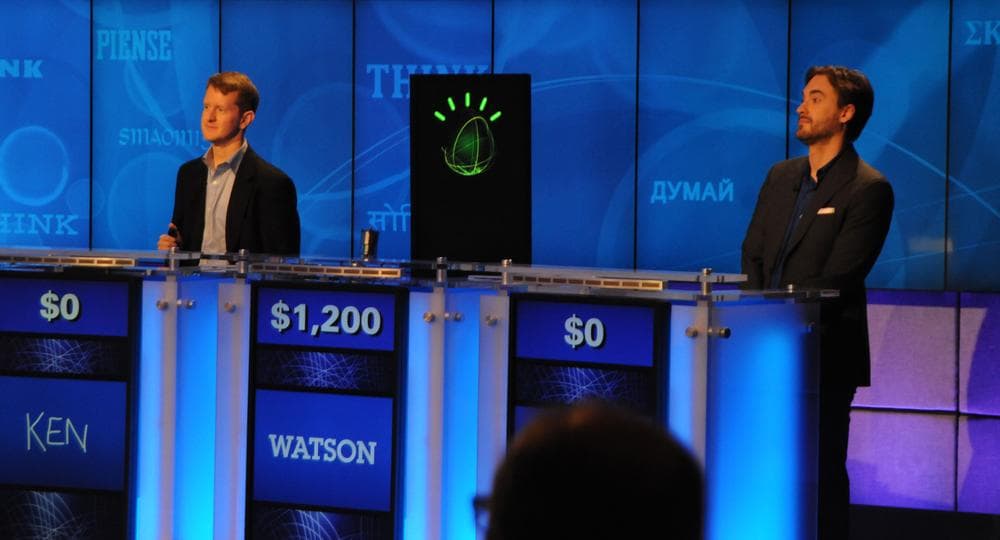Advertisement
IBM's Watson Supercomputer Moves From 'Jeopardy!' To Health Care

Would you feel comfortable taking medical advice from a computer?
Many people already use the Internet to diagnose illnesses. But now IBM's supercomputer, Watson, is teaming up with one of the country's largest health care insurers, Wellpoint Inc., to help diagnose and treat patients.
The computer can process 200 million pages of content in less than three seconds and trounced two former Jeopardy! champs earlier this year.
Now Watson will use its computing power to help health care professionals in Wellpoint's network, which covers 34 million patients.
Initially, Wellpoint will use Watson as another tool in reviewing requests for medical treatment. Starting next year, oncologists will take part in a pilot program to help treat and diagnose cancer patients.
But IBM medical scientist, Dr. Josko Silobrcic, told Here & Now's Robin Young that Watson will never replace health care professionals, but will be used to help improve medical care.
"Medical evidence or medical content basically doubles every five years," Silobrcic said. "It is virtually impossible for a physician, a nurse, any health care practitioner to stay completely on top of that. And this is actually a way for technology to bring that to your fingertips."
IBM demonstrated how doctors could use Watson at the National Press Club in Washington, D.C. last month. During the demo, IBM fed in a hypothetical patient's symptoms, and Watson correctly identified Lyme disease as the illness.
Silobrcic said that Watson is particularly well-suited for treating people with an array of health problems.
Advertisement
"If someone has multiple chronic diseases, and has been a.. diabetic patient for 30 years, and has something in their medical record that ought to be considered when they... are presenting to a physician, it is very unrealistic for the individual physician to remember that information, but Watson is a computer, and a computer will not forget," Silobrcic said.
IBM says Watson could one day be used in finance, tech support and even the government, eventually growing a $1 billion a year business for them.
How Watson Works:
Watson's brain takes up more space than eight large refrigerators, and draws all the information from its own data sources (no Googling here!)
- Step 1 - Question Analysis: parses the question into parts of speech to determine what kind of question is being asked and what the question is looking for.
- Step 2 - Hypothesis Generation: looks through hundreds of millions of documents to find thousands of possible answers - then narrows it down from there.
- Step 3 Hypothesis and Evidence Scoring: it finds passages from different sources and uses algorithms to score the answers in terms of degree of probability.
- Step 4 - Final Merging and Ranking: Watson uses the experience it gains during practice games to weigh, decide and determine which algorithm works best.
Guest:
- Dr. Josko Silobrcic, IBM medical scientist
This segment aired on October 18, 2011.